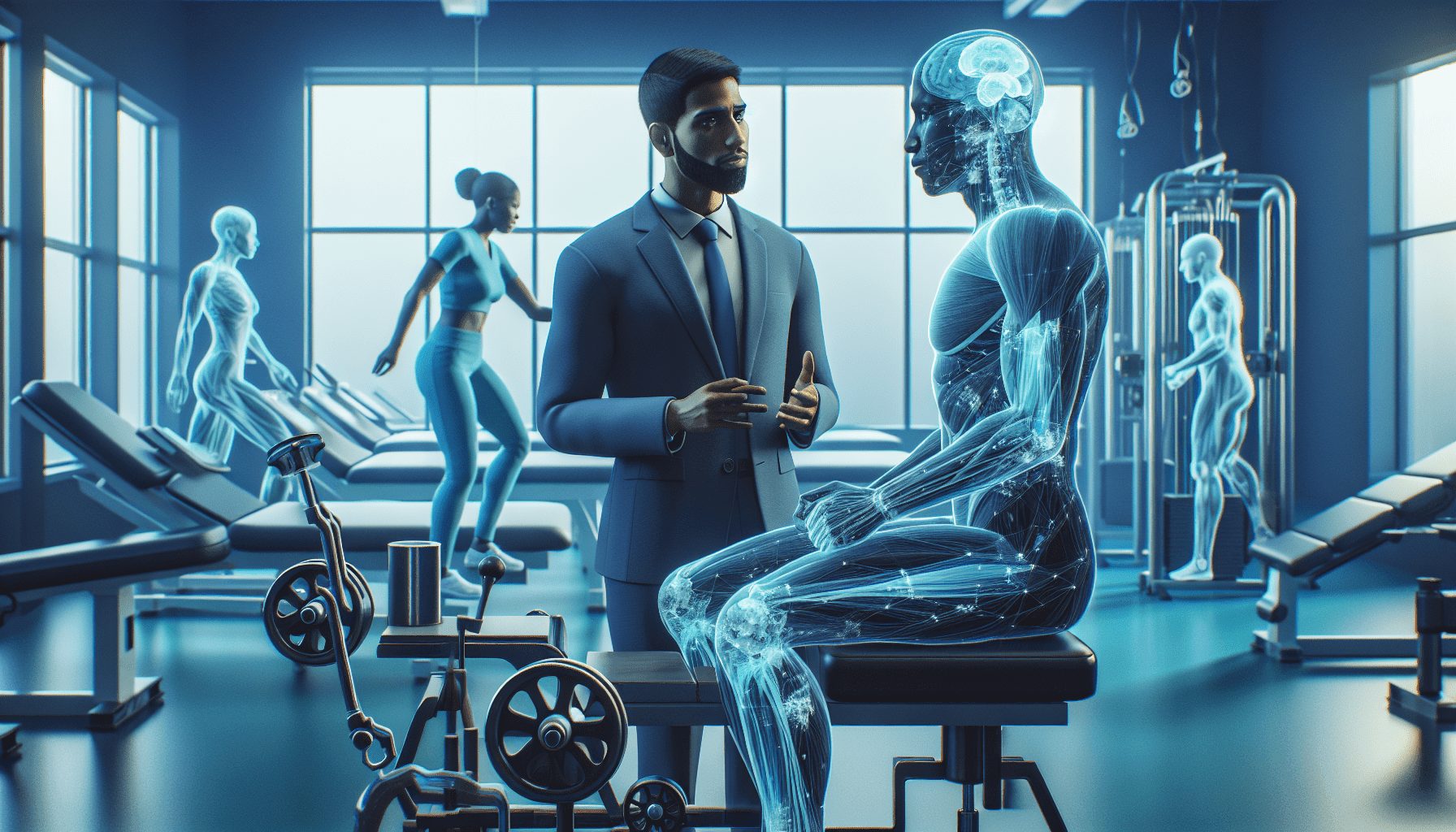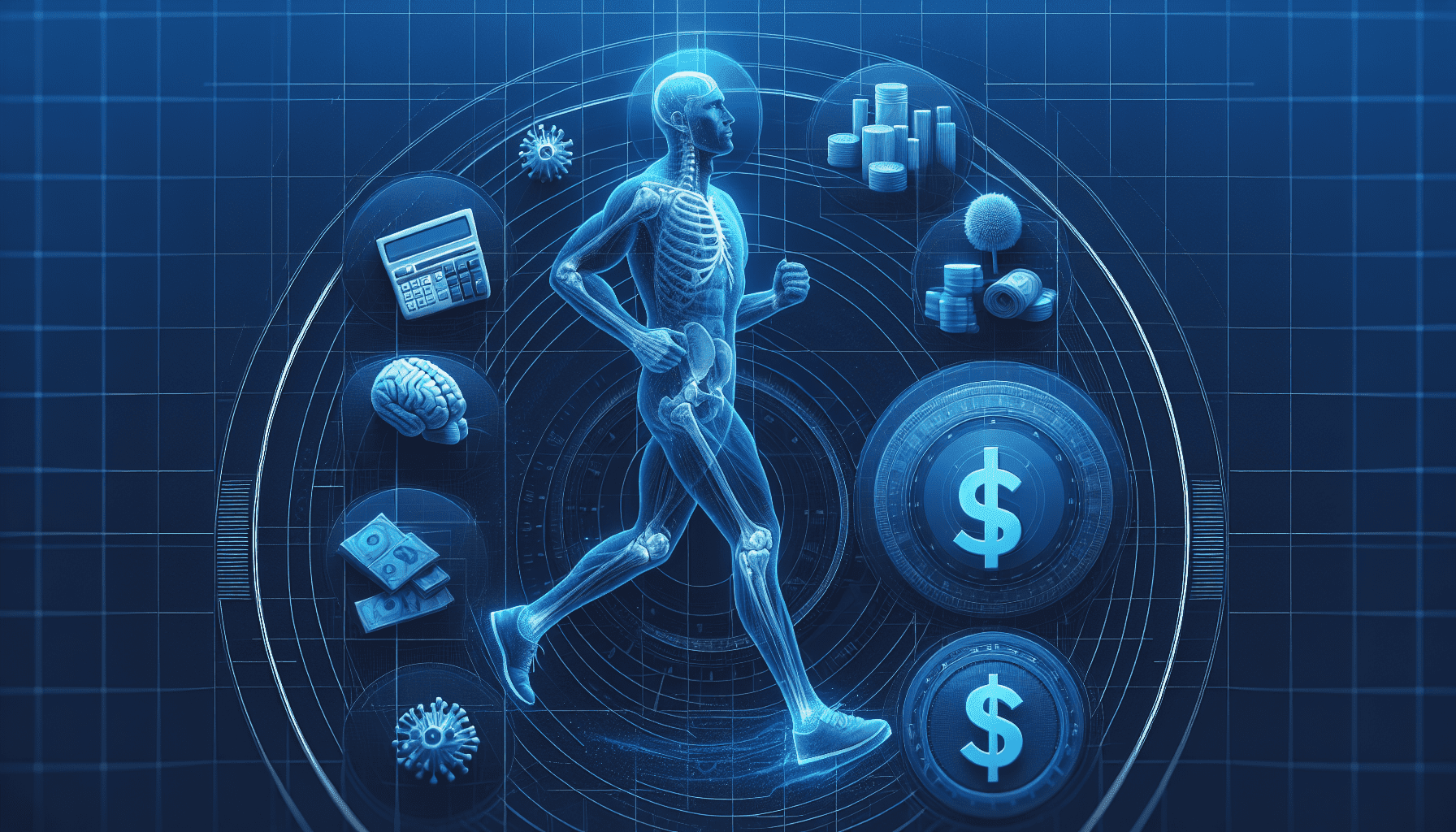Revolutionizing Hiring: The Power of Recruiting AI
In today’s rapidly evolving job market, the traditional methods of hiring are being revolutionized by the emergence of recruiting AI. This powerful technology is reshaping the way organizations find and select top talent, bringing unprecedented efficiency and effectiveness to the hiring process.
As the demand for skilled professionals continues to rise, companies are faced with the challenge of sifting through a vast pool of candidates to find the perfect fit. This changing landscape of hiring necessitates innovative solutions that can handle the volume and complexity of modern recruitment.
Recruiting AI, also known as AI for recruiting, is the cutting-edge application of artificial intelligence in the hiring process. By leveraging advanced algorithms and machine learning capabilities, AI technology can automate and streamline various aspects of recruitment, revolutionizing the way organizations identify, evaluate, and hire candidates.
Gone are the days of manually sifting through stacks of resumes or relying solely on subjective assessments. With AI recruiting software, companies can harness the power of data-driven insights and predictive analytics to make informed hiring decisions. The use of AI in recruitment offers a myriad of benefits, from increased efficiency and improved candidate matching to a reduction in bias and discrimination.
In this article, we will delve into the world of recruiting AI, exploring its definition, capabilities, and the advantages it brings to the hiring process. We will also discuss how it works, the challenges and considerations involved, and the future implications of this transformative technology. So, fasten your seatbelts and get ready to embark on a journey into the exciting realm of AI-powered recruitment.
What is Recruiting AI?
In today’s ever-evolving world of hiring, Recruiting AI has emerged as a revolutionary technology that is transforming traditional recruitment processes. Recruiting AI refers to the application of artificial intelligence (AI) in the recruitment and hiring process. It harnesses the power of advanced algorithms and machine learning to automate various stages of recruitment, making it more efficient, accurate, and unbiased.
At its core, Recruiting AI is designed to analyze vast amounts of data and perform complex tasks that were previously time-consuming and prone to human error. With its advanced capabilities, Recruiting AI acts as a virtual assistant to recruiters, streamlining their workflow and enabling them to focus on more strategic aspects of the hiring process.
Recruiting AI incorporates a range of technologies, including natural language processing (NLP), machine learning, and predictive analytics, to deliver exceptional results in candidate screening, sourcing, and selection. By leveraging these technologies, Recruiting AI can intelligently analyze resumes, identify the best-fit candidates, and even predict their future performance.
The capabilities of Recruiting AI extend beyond traditional recruitment methods. It can automate resume screening, identify relevant keywords and skills, and rank candidates based on their qualifications. Additionally, Recruiting AI can use AI-powered candidate sourcing techniques to identify potential candidates from various online platforms and social media networks. This ensures that recruiters have access to a wider pool of talent, increasing the chances of finding the perfect match for a job opening.
One of the most significant advantages of Recruiting AI is its ability to reduce bias and discrimination in the hiring process. By relying on objective data and algorithms, Recruiting AI minimizes the impact of unconscious biases that may influence human decision-making. This promotes fairness and equal opportunities for all candidates, regardless of their background, gender, or ethnicity.
Moreover, Recruiting AI enhances the candidate experience by providing timely feedback and personalized communication. It can automate the scheduling of interviews, conduct video interviews and assessments, and even provide candidates with insights into their performance. This creates a more engaging and efficient hiring process, leaving candidates with a positive impression of the organization.
In summary, Recruiting AI represents a paradigm shift in the way organizations approach hiring. By harnessing the power of AI, it enables recruiters to streamline their processes, increase efficiency, and make more informed decisions. With its advanced capabilities, Recruiting AI is set to revolutionize the recruitment landscape, making it easier for organizations to find the right talent and for candidates to find their dream jobs.
To learn more about Recruiting AI and its applications, check out our AI Recruiter page.
Benefits of Recruiting AI
Recruiting AI, also known as artificial intelligence, is revolutionizing the hiring process and bringing numerous benefits to organizations of all sizes. This section will explore the advantages that companies can gain by leveraging the power of recruiting AI.
Increased Efficiency in Screening and Shortlisting Candidates
One of the primary benefits of recruiting AI is its ability to significantly increase efficiency in screening and shortlisting candidates. Traditionally, recruiters have had to spend countless hours manually reviewing resumes and applications, a time-consuming process that often leads to overlooked qualified candidates. However, with the advent of AI in recruiting, this arduous task can now be automated.
Recruiting AI utilizes advanced algorithms and machine learning to analyze resumes and applications swiftly. By employing natural language processing and pattern recognition, AI-powered systems can quickly identify relevant skills, qualifications, and experiences, allowing recruiters to focus their attention on the most promising candidates. This streamlined screening process not only saves time but also ensures that no potential talent is overlooked.
Improved Candidate Matching
Another significant advantage of recruiting AI is its ability to improve candidate matching. Traditional hiring methods often rely on manual keyword searches and subjective decision-making, which can lead to biased and inaccurate candidate selection. However, AI algorithms can analyze large volumes of data, including job descriptions and candidate profiles, to identify the most suitable matches based on objective criteria.
Recruiting AI systems can assess a candidate’s qualifications, skills, and experiences and compare them with the requirements of the job. By considering both hard and soft skills, as well as cultural fit, AI-powered platforms can provide recruiters with a shortlist of highly compatible candidates. This enhanced candidate matching not only improves the chances of finding the right person for the job but also reduces the risk of making biased decisions.
Reduction in Bias and Discrimination
Bias and discrimination have long been challenges in the hiring process. Unconscious biases can unintentionally influence decisions, leading to unfair treatment and missed opportunities for qualified candidates. However, recruiting AI has the potential to mitigate these issues by introducing objectivity and consistency into the hiring process.
AI algorithms are designed to evaluate candidates based on their qualifications and skills rather than personal characteristics. By removing human biases from the equation, AI-powered systems can help organizations make more fair and unbiased hiring decisions. This reduction in bias and discrimination not only promotes diversity and inclusion but also helps companies tap into a wider pool of talent.
Enhanced Candidate Experience
The candidate experience plays a crucial role in attracting top talent and building a positive employer brand. Traditional hiring processes often involve long wait times, lack of communication, and impersonal interactions, which can leave candidates feeling frustrated and undervalued. However, recruiting AI can significantly enhance the candidate experience by automating and streamlining various aspects of the hiring process.
AI-powered platforms can provide real-time updates to candidates, keeping them informed about the progress of their application and minimizing the waiting period. Additionally, AI chatbots can answer candidates’ questions promptly and provide personalized recommendations based on their skills and preferences. By delivering a seamless and engaging experience, recruiting AI helps organizations leave a positive impression on candidates, even those who may not be ultimately selected for the position.
Recruiting AI offers a range of benefits, including increased efficiency in screening and shortlisting candidates, improved candidate matching, reduction in bias and discrimination, and enhanced candidate experience. By harnessing the power of AI in the hiring process, organizations can streamline their recruitment efforts, make data-driven decisions, and attract top talent in a competitive job market.
Read more about the benefits of recruiting AI and how it can transform your hiring process here.
How Recruiting AI Works
Recruiting AI utilizes advanced algorithms and machine learning techniques to streamline and optimize various aspects of the hiring process. By harnessing the power of artificial intelligence, organizations can improve their efficiency, accuracy, and effectiveness in finding the right candidates for their job openings.
Automated Resume Screening
One of the key functionalities of recruiting AI is automated resume screening. Traditional methods of manually reviewing resumes can be time-consuming and prone to human error. However, with the advent of AI, resumes can now be scanned and analyzed in a matter of seconds, saving recruiters valuable time and effort.
AI-powered algorithms can analyze resumes for keywords, skills, qualifications, and experience, matching them against predefined criteria set by the hiring manager. This automated screening process allows recruiters to focus their attention on the most qualified candidates, significantly reducing the time spent sifting through a large pool of resumes.
AI-powered Candidate Sourcing
Recruiting AI also revolutionizes candidate sourcing by leveraging the vast amount of data available online. AI algorithms can scour various sources such as professional networking sites, job boards, and social media platforms to identify potential candidates who possess the desired skills and qualifications.
By using AI-powered candidate sourcing, recruiters can access a larger talent pool and discover candidates who may not have applied directly. This proactive approach to sourcing ensures that organizations do not miss out on top talent and can fill their positions more efficiently.
Video Interviews and Assessments
Incorporating video interviews and assessments into the hiring process is another way AI enhances recruitment. With the help of AI, recruiters can conduct video interviews and assessments remotely, eliminating the need for candidates and interviewers to be physically present in the same location.
AI algorithms can analyze facial expressions, body language, and tone of voice, providing valuable insights to recruiters about a candidate’s suitability for the role. These assessments can be customized to specific job requirements, ensuring a more accurate evaluation of candidates.
Predictive Analytics for Candidate Selection
One of the most powerful applications of recruiting AI is its ability to leverage predictive analytics in candidate selection. By analyzing historical data and patterns, AI algorithms can predict which candidates are more likely to succeed in a particular role.
Predictive analytics can consider factors such as past performance, educational background, work experience, and other relevant data points to generate a candidate ranking or suitability score. This data-driven approach helps recruiters make more informed decisions and increases the likelihood of selecting the right candidate for the job.
In conclusion, recruiting AI offers a range of innovative tools and techniques that transform the hiring process. From automated resume screening to AI-powered candidate sourcing, video interviews, and predictive analytics, AI optimizes various stages of recruitment, saving time, reducing bias, and improving the overall candidate experience.
To learn more about the benefits and applications of AI in recruiting, check out Engaged Headhunters, an AI recruitment agency that specializes in leveraging cutting-edge AI technology to help organizations find the best candidates for their needs.
Challenges and Considerations
As with any innovative technology, the use of AI in hiring also comes with its fair share of challenges and considerations. It is important to address these concerns to ensure the ethical and responsible use of AI in the recruitment process.
Ethical and Fair Use of AI in Hiring
One of the primary challenges in adopting AI for hiring is ensuring its ethical and fair use. AI algorithms are designed to make decisions based on patterns and data, but there is always a risk of bias creeping into the system. If the training data used to build the AI models is biased, it can lead to discriminatory outcomes in the hiring process. For example, if the historical data used to train the AI system reflects bias against certain demographics, the algorithm may inadvertently perpetuate that bias by screening out qualified candidates from those groups.
To overcome this challenge, organizations need to carefully curate and diversify the data used to train AI models. They should also regularly monitor and audit the AI systems to identify and rectify any biases. Additionally, human oversight and intervention are crucial to ensure that AI decisions align with ethical and fair hiring practices. HR professionals should review the AI-generated results and make the final decisions to avoid any potential discrimination.
Data Privacy and Security
Another significant concern when using AI in hiring is the protection of candidate data privacy and security. AI algorithms rely on vast amounts of personal data, including resumes, social media profiles, and assessment results, to make informed hiring decisions. It is essential for organizations to establish robust data protection measures to safeguard this sensitive information.
To address this challenge, organizations should comply with relevant data protection regulations, such as the General Data Protection Regulation (GDPR), and implement stringent security protocols. They should also ensure that candidate data is stored securely and only accessible to authorized personnel. Transparency is key, and candidates should be informed about how their data is being used and given the option to opt out if they wish.
Human Oversight and Intervention
While AI can automate many aspects of the hiring process, it is crucial to maintain human oversight and intervention. AI algorithms are not infallible, and there may be instances where they make errors or misinterpret information. Human judgment and intuition are still invaluable in assessing candidates’ soft skills, cultural fit, and overall suitability for a role.
Organizations should strike a balance between AI automation and human involvement to ensure the best outcomes. HR professionals should review the AI-generated results, validate the recommendations, and make the final decisions. This human touch not only adds a layer of accountability but also ensures that the hiring process remains personalized and empathetic.
By addressing these challenges and considerations, organizations can harness the power of AI in hiring while upholding ethical standards, protecting candidate data, and maintaining the crucial human element in the decision-making process.
Continue reading about the potential advancements and developments in the future of recruiting AI.
Future of Recruiting AI
As the field of recruiting AI continues to evolve, there are several potential advancements and developments on the horizon that have the potential to revolutionize the job market and the HR industry as a whole.
Potential Advancements and Developments
One of the key areas of advancement in recruiting AI is the improvement of candidate matching. Currently, AI algorithms analyze candidate profiles and job requirements to identify the best fit. However, with ongoing research and development, we can expect AI to become even more sophisticated in understanding the intricacies of job roles and the skills and experiences required. This could lead to more accurate and precise candidate recommendations, ensuring that organizations find the perfect match for their open positions.
Another potential advancement lies in the area of predictive analytics for candidate selection. By leveraging historical data and machine learning algorithms, AI can analyze patterns and trends to predict a candidate’s likelihood of success in a particular role. This can help organizations make more informed decisions during the hiring process, increasing the chances of hiring the right candidate and reducing turnover.
Additionally, as AI technology becomes more advanced, we can anticipate the development of intelligent virtual assistants that can automate various aspects of the recruitment process. These virtual assistants could handle tasks such as scheduling interviews, conducting initial screenings, and answering frequently asked questions from candidates. By automating these time-consuming tasks, recruiters can focus on building relationships with candidates and making strategic hiring decisions.
Impact on the Job Market and HR Industry
The integration of recruiting AI into the job market and HR industry is expected to have a profound impact on both job seekers and employers.
For job seekers, the use of AI in recruitment can provide increased access to job opportunities. AI-powered platforms can match candidates with relevant job openings based on their skills, experiences, and preferences, making it easier for individuals to find the right job fit. This can be particularly beneficial for passive job seekers who may not actively search for new opportunities but are open to considering a change if the right opportunity presents itself.
On the employer side, recruiting AI can streamline and expedite the hiring process. By automating tasks such as resume screening and candidate sourcing, recruiters can save valuable time and resources. This efficiency allows organizations to fill vacancies more quickly, reducing time-to-hire and minimizing the impact of a vacant position on productivity and team dynamics.
Furthermore, the use of AI in recruitment has the potential to reduce bias and discrimination in the hiring process. AI algorithms are designed to focus on objective criteria, such as skills and qualifications, rather than subjective factors like race, gender, or age. This can help create a more diverse and inclusive workforce, leading to improved innovation and organizational performance.
However, it is important to note that there are challenges and considerations associated with the use of recruiting AI. Ethical and fair use of AI in hiring, data privacy and security, and the need for human oversight and intervention are among the key concerns that need to be addressed to ensure the responsible and effective implementation of AI in recruitment.
In conclusion, the future of recruiting AI holds immense potential for advancements and developments that can transform the job market and the HR industry. With continued research and innovation, we can expect more accurate candidate matching, predictive analytics, and intelligent virtual assistants to enhance the efficiency and effectiveness of the hiring process. As these technologies mature, they have the power to create a more inclusive and efficient job market that benefits both job seekers and employers.
Conclusion
In conclusion, the advent of recruiting AI has brought about a significant transformation in the hiring landscape. With its advanced capabilities and streamlined processes, recruiting AI has revolutionized the way organizations identify and select top talent.
By leveraging AI-powered candidate sourcing and automated resume screening, companies can now efficiently sift through large volumes of resumes, saving time and effort in the early stages of the hiring process. This increased efficiency in screening and shortlisting candidates allows recruiters to focus their attention on the most qualified individuals, improving the overall quality of the candidate pool.
Moreover, recruiting AI has introduced improved candidate matching by utilizing sophisticated algorithms that analyze not only the candidate’s skills and qualifications but also their cultural fit within the organization. This leads to better alignment between candidates and job requirements, resulting in higher job satisfaction and reduced turnover rates.
One of the most compelling benefits of recruiting AI is its ability to reduce bias and discrimination in the hiring process. Traditional hiring methods are often plagued by unconscious biases that can unfairly disadvantage certain candidates. However, AI algorithms are designed to evaluate candidates based on objective criteria, minimizing the influence of subjective factors such as gender, race, or age. This fosters a more inclusive and diverse workforce, which has been shown to enhance innovation and productivity.
Furthermore, recruiting AI plays a crucial role in enhancing the candidate experience. Through features like video interviews and assessments, candidates can showcase their skills and personality in a more engaging and interactive manner. This not only provides a more comprehensive evaluation of their suitability for the role but also creates a positive impression of the hiring process and the organization as a whole.
While the benefits of recruiting AI are undeniable, there are also important challenges and considerations that need to be addressed. Ethical and fair use of AI in hiring is paramount to ensure that decisions are made based on relevant and non-discriminatory factors. Additionally, data privacy and security must be prioritized to safeguard sensitive candidate information. Finally, human oversight and intervention are essential to maintain a balance between the efficiency of AI and the human touch required in the hiring process.
Looking ahead, the future of recruiting AI holds immense potential. Advancements in technology will likely lead to even more sophisticated algorithms and predictive analytics, enabling organizations to make data-driven hiring decisions with greater accuracy. However, it is important to acknowledge that the rise of recruiting AI may also have implications for the job market and the HR industry. While AI can automate certain tasks, it is unlikely to replace the critical thinking and emotional intelligence that human recruiters bring to the table.
In conclusion, recruiting AI has emerged as a powerful tool in the hiring process, offering increased efficiency, improved candidate matching, reduced bias, and enhanced candidate experience. By leveraging the capabilities of AI recruiting software and tools, organizations can optimize their recruitment efforts and build high-performing teams. As technology continues to advance, it is crucial to navigate the ethical considerations and strike a balance between the benefits of recruiting AI and the human touch required in the hiring process.
To explore the possibilities of recruiting AI for your organization, consider partnering with an AI recruitment agency like Engaged Headhunters. With their expertise in AI recruitment and access to the best AI recruiting tools, they can help you leverage the power of AI to attract and retain top talent. Discover the future of hiring with recruiting AI today.
Tags: AI recruiter, AI candidate sourcing, AI recruiting software, AI recruiting tools, best AI tools for recruiting, AI recruitment tools, AI HR software, best AI recruiting software, top AI recruiting tools, AI recruitment, AI talent sourcing, AI hiring tools, AI screening tools, best AI recruiting tools, AI for recruiting, HR AI software, AI sourcing tools, recruiting AI software, AI in recruiting, AI-based recruitment platform, artificial intelligence in recruitment, Engaged Headhunters – an AI recruitment agency, recruitment AI tools, AI recruiting platform, AI in recruitment, AI recruitment software, what is AI recruitment, recruit AI, using AI in recruitment.







